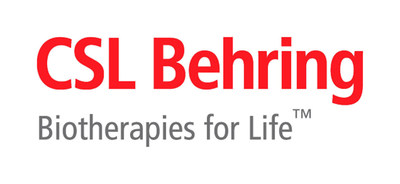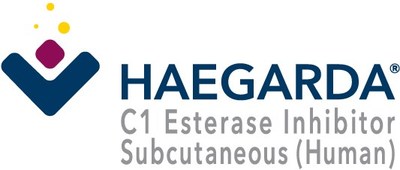Carlisle Companies Aktie
WKN: 871884 / ISIN: US1423391002
|
29.10.2017 19:30:00
|
Data on the Preventive Effects of HAEGARDA® (C1 Esterase Inhibitor Subcutaneous [Human]) in Subjects with Very Frequent HAE Attacks Presented by CSL Behring at the 2017 ACAAI Annual Scientific Meeting
KING OF PRUSSIA, Pa., Oct. 29, 2017 /PRNewswire/ -- Global biotherapeutics leader CSL Behring today presented data indicating that, at the approved dose of 60 IU/kg, HAEGARDA® reduced the median number of hereditary angioedema (HAE) attacks per month by 98 percent in subjects who had frequent attacks, from a 16-week placebo period to a 16-week treatment period. Additionally, the breakthrough attack rate – extrapolated to one year – was reduced from approximately 70 attacks per year for subjects on placebo to approximately six attacks per year for the same subjects when on HAEGARDA.1 These findings were presented in an oral abstract session at the 2017 American College of Allergy, Asthma & Immunology (ACAAI) Annual Scientific Meeting.

"Approximately 30 percent of HAE patients experience weekly attacks, and the majority of those attacks can be debilitating to daily living," said Timothy Craig, D.O., Professor of Medicine and Pediatrics, Pennsylvania State University Medical School, Hershey, Pennsylvania. "These data demonstrate the ability of HAEGARDA to effectively prevent HAE attacks in patients who have severe and frequent HAE attacks."
The presented subgroup analysis was based on data from the Phase III COMPACT trial. The subgroup analysis evaluated 21 subjects with very frequent HAE attacks of the 43 study subjects who received 60 IU/kg of subcutaneous C1-esterase inhibitor (C1-INH) and a corresponding placebo over a 16-week treatment period each. High attack frequency was defined as experiencing at least one HAE attack per week (on average, greater than or equal to four attacks per month) while on placebo.1
"These results reinforce the efficacy we've seen across a broader patient population, and add to our body of knowledge by showing that HAEGARDA is also highly effective in reducing the number of attacks in patients severely affected by HAE," said Debra Bensen-Kennedy, MD, Vice President for Medical Affairs, North America, CSL Behring. "HAE is an extremely debilitating disease, and this continued research and the development of HAEGARDA reflects our commitment to improving patients' lives."
HAEGARDA is a self-administered, plasma-derived concentrate of C1-INH injected twice weekly subcutaneously (just under the skin). HAEGARDA targets the root cause of HAE by replacing deficient or dysfunctional C1-INH protein, restoring C1-INH levels above 40 percent, which is proposed to reduce the risk of HAE attacks.2 Subcutaneous administration of C1-INH builds and maintains steady-state functional C1-INH levels within three to four doses of HAEGARDA.
The U.S. Food and Drug Administration (FDA) approved HAEGARDA on June 22, 2017 for routine prophylaxis to prevent HAE attacks in adolescent and adult patients.
For more information about HAEGARDA, including the U.S. Prescribing Information, visit www.HAEGARDA.com.
About HAEGARDA® (C1 Esterase Inhibitor Subcutaneous [Human])
HAEGARDA is a self-administered, plasma-derived concentrate of C1-esterase inhibitor and the only subcutaneous therapy approved in the United States for routine prophylaxis to prevent HAE attacks in adolescent and adult patients.
HAEGARDA targets the root cause of HAE by replacing deficient or dysfunctional C1-INH, restoring functional C1-INH levels to above 40 percent, which is proposed to reduce the risk for HAE attacks.2 HAEGARDA is dosed based on body weight so that each patient receives an individualized amount of HAEGARDA.
About Hereditary Angioedema (HAE)
HAE is a rare and potentially life-threatening genetic condition that occurs in about 1 in 10,000 to 1 in 50,000 people. HAE is caused by deficient or dysfunctional C1-INH, a protein in the blood that helps to control inflammation. Inadequate amounts of properly functioning C1-INH can lead to the accumulation of fluid in body tissues, causing considerable swelling referred to as angioedema.3 HAE attacks can affect many parts of the body and can spread to multiple sites, including the face, abdomen, larynx, and extremities.4 Patients who have abdominal attacks of HAE can experience extreme pain, diarrhea, nausea, and vomiting caused by swelling of the intestinal wall.5 HAE attacks that involve the face or throat can result in airway closure, asphyxiation, and, if left untreated, death.4
INDICATIONS and IMPORTANT SAFETY INFORMATION About HAEGARDA
INDICATIONS
HAEGARDA®, C1 Esterase Inhibitor Subcutaneous (Human), is a plasma-derived concentrate of C1 Esterase Inhibitor (C1-INH) indicated for routine prophylaxis to prevent Hereditary Angioedema (HAE) attacks in adolescent and adult patients. HAEGARDA is for subcutaneous use after reconstitution only.
IMPORTANT SAFETY INFORMATION
HAEGARDA®, C1 Esterase Inhibitor Subcutaneous (Human), is a plasma-derived concentrate of C1 Esterase Inhibitor (C1-INH) indicated for routine prophylaxis to prevent Hereditary Angioedema (HAE) attacks in adolescent and adult patients. HAEGARDA is for subcutaneous use after reconstitution only.
HAEGARDA is contraindicated in patients with a history of life-threatening hypersensitivity reactions, including anaphylaxis, to C1-INH preparations or their excipients.
Severe hypersensitivity reactions to HAEGARDA could occur. In such cases, discontinue administration and institute appropriate treatment. Epinephrine should be immediately available to treat hypersensitivity reactions.
At the recommended subcutaneous dose of HAEGARDA, no causal relationship to thromboembolic events (TEs) has been established. However, TEs have been reported with intravenous administration of C1-INH products, usually at high doses.
In clinical trials, adverse reactions observed in more than 4% of subjects treated with HAEGARDA were injection-site reactions, hypersensitivity, nasopharyngitis, and dizziness.
HAEGARDA is derived from human plasma. The risk of transmission of infectious agents, including viruses and, theoretically, the Creutzfeldt-Jakob disease (CJD) agent and its variant (vCJD), cannot be completely eliminated.
Full HAEGARDA Prescribing Information can be found at www.HAEGARDA.com.
About CSL Behring
CSL Behring is a global biotherapeutics leader driven by its promise to save lives. Focused on serving patients' needs by using the latest technologies, we develop and deliver innovative therapies that are used to treat coagulation disorders, primary immune deficiencies, hereditary angioedema, inherited respiratory disease, and neurological disorders. The company's products are also used in cardiac surgery, organ transplantation, burn treatment and to prevent hemolytic disease of the newborn.
CSL Behring operates one of the world's largest plasma collection networks, CSL Plasma. The parent company, CSL Limited (ASX:CSL; USOTC:CSLLY), headquartered in Melbourne, Australia, employs nearly 20,000 people, and delivers its life-saving therapies to people in more than 60 countries. For more information visit www.cslbehring.com and follow us on www.Twitter.com/CSLBehring.
1 Craig T, et al. Preventive Effect Of Subcutaneous C1 Inhibitor In Patients With Very Frequent Attacks Of Hereditary Angioedema. ACAAI's 2017 Annual Scientific Meeting, Boston, Massachusetts, October 26-30. Sunday (29-October-2017) 2:30 – 2:45 PM (4th Slot). Oral Abstract Number: OR31. NCT01912456.
2 Longhurst H, et al. Prevention of Hereditary Angioedema Attacks with a Subcutaneous C1 Inhibitor. N Eng J Med. 2017; 376 :1131-1140.
3 Kemp JG, et al. Variability of prodromal signs and symptoms associated with hereditary angioedema attacks: A literature review. Allergy Asthma Proc. 2009;30:492-499.
4 Agostoni A, et al. Hereditary and acquired angioedema: problems and progress: proceedings of the third C1 esterase inhibitor deficiency workshop and beyond. J Allergy Clin Immunol. 2004;114(3 Suppl):S51-131.
5 Frank MM, et al. Hereditary angioedema. J Allergy Clin Immunol. 2008;121(2):S398-S401.

View original content with multimedia:http://www.prnewswire.com/news-releases/data-on-the-preventive-effects-of-haegarda-c1-esterase-inhibitor-subcutaneous-human-in-subjects-with-very-frequent-hae-attacks-presented-by-csl-behring-at-the-2017-acaai-annual-scientific-meeting-300545203.html
SOURCE CSL Behring
 Der finanzen.at Ratgeber für Aktien!
Der finanzen.at Ratgeber für Aktien!
Wenn Sie mehr über das Thema Aktien erfahren wollen, finden Sie in unserem Ratgeber viele interessante Artikel dazu!
Jetzt informieren!
Nachrichten zu Carlisle Companies Inc.mehr Nachrichten
|
22.04.25 |
Ausblick: Carlisle Companies gewährt Anlegern Blick in die Bücher (finanzen.net) | |
|
03.02.25 |
Ausblick: Carlisle Companies legt Quartalsergebnis vor (finanzen.net) | |
|
30.01.25 |
Passenger jet and Black Hawk helicopter collide over Washington (Financial Times) |
Analysen zu Carlisle Companies Inc.mehr Analysen
Aktien in diesem Artikel
| Carlisle Companies Inc. | 324,60 | -1,28% |
|